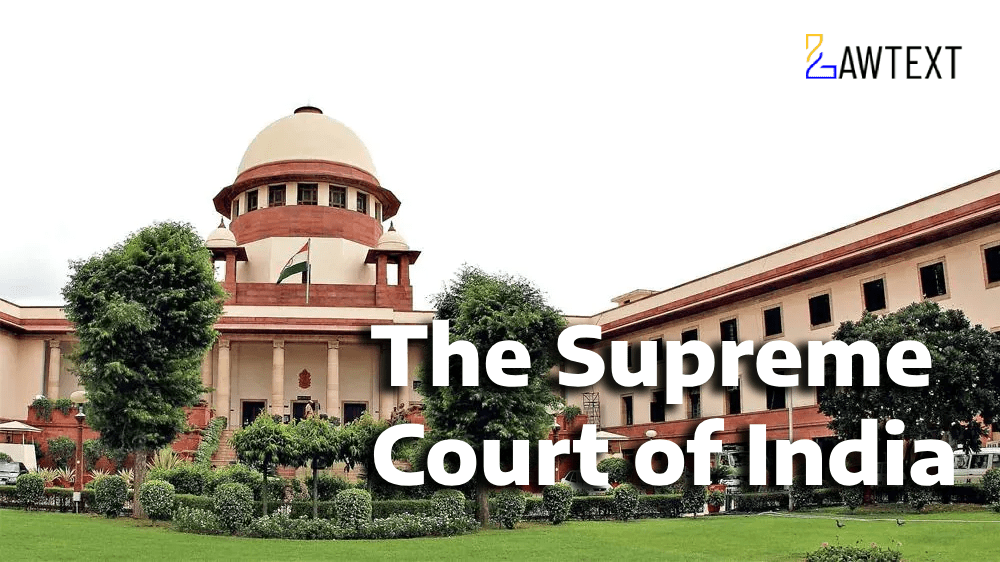

Suppression of Material Facts: A litigant invoking the extraordinary jurisdiction of the High Court under Article 226 of the Constitution must come with clean hands. Suppression of material facts disqualifies the litigant from obtaining any relief. (Para 9-11) Powers of the Governing Board: The Governing Board of the Auroville Foundation has the exclusive authority to issue Standing Orders and constitute committees for the implementation of the Master Plan. The Residents’ Assembly’s role is advisory, and it has no statutory right to be part of such committees. (Para 14-17) Abuse of Process: Repeated litigation by disgruntled residents, aimed at obstructing the development of Auroville, amounts to an abuse of the process of law. (Para 19)
The Supreme Court held that the High Court erred in entertaining the Writ Petition, as the Respondent had suppressed material facts regarding the dismissal of her earlier petition. The Doctrine of Clean Hands applies, and such conduct amounts to an abuse of the process of law. (Para 9-11) The Court upheld the authority of the Governing Board under Sections 11(3), 16(1), and 17(e) of the A.F. Act to issue Standing Orders and constitute committees like the ATDC. The Residents’ Assembly has no statutory right to be part of such committees. (Para 14-17) The impugned Standing Order No. 1/2022 was found to be legally valid, and the High Court’s decision to set it aside was reversed. (Para 18)
Major Acts:
Constitution of India (COI), Article 226 – Jurisdiction of High Courts to issue writs.
Auroville Foundation Act, 1988 (A.F. Act) – Governing Board’s powers and functions.
Auroville Foundation Rules, 1997 (A.F. Rules) – Composition and functions of committees.
Subjects:
Auroville Foundation, Governing Board, Residents’ Assembly, Standing Order, Master Plan, Town Development Council, Abuse of Process, Suppression of Material Facts, Doctrine of Clean Hands.
Facts:
Nature of the Litigation: The appeal challenged the Madras High Court’s judgment dated 15.03.2024, which set aside the Standing Order No. 1/2022 issued by the Auroville Foundation. The High Court had allowed the Writ Petition filed by Respondent Natasha Storey, who sought to challenge the reconstitution of the Auroville Town Development Council (ATDC) by the Governing Board.
Who is asking the court and for what remedy? The Auroville Foundation, the appellant, sought to reinstate the Standing Order No. 1/2022, which reconstituted the ATDC, arguing that the High Court erred in setting aside the order.
Reason for filing the case: The Respondent, Natasha Storey, challenged the Standing Order, claiming that the Governing Board had no authority to replace the nominees of the Residents’ Assembly with its own nominees in the ATDC.
What has already been decided until now? The High Court had earlier dismissed Natasha Storey’s Writ Petition No. 22895/2022, but she filed a subsequent petition (Writ Petition No. 25882/2022) without disclosing the dismissal of the earlier petition. The High Court allowed the second petition, setting aside the Standing Order.
Issues:
Whether the High Court erred in entertaining the Writ Petition despite the suppression of material facts by the Respondent?
Whether the Governing Board of the Auroville Foundation had the authority to issue Standing Order No. 1/2022, reconstituting the ATDC?
Whether the Residents’ Assembly or individual residents have a statutory right to be part of committees constituted by the Governing Board?
Submissions/Arguments:
Appellant (Auroville Foundation):
The Respondent suppressed material facts by not disclosing the dismissal of her earlier Writ Petition.
The Governing Board, under Section 11(3) of the A.F. Act, has the power to issue Standing Orders and constitute committees for the efficient discharge of its functions.
The Master Plan of Auroville, approved in 2001, was prepared in consultation with the Residents’ Assembly, and the ATDC was constituted to implement the plan.
Respondent (Natasha Storey):
The Standing Order No. 1/2022 was not in consonance with the A.F. Act, as it replaced the nominees of the Residents’ Assembly with the Governing Board’s nominees.
The Residents’ Assembly should have a role in the constitution of committees like the ATDC.
Citation: 2025 LawText (SC) (3) 172
Case Number: CIVIL APPEAL NO. 13651 OF 2024
Date of Decision: 2025-03-17
Case Title: THE AUROVILLE FOUNDATION VERSUS NATASHA STOREY
Before Judge: [BELA M. TRIVEDI J. , PRASANNA B. VARALE J.]
Appellant: THE AUROVILLE FOUNDATION
Respondent: NATASHA STOREY